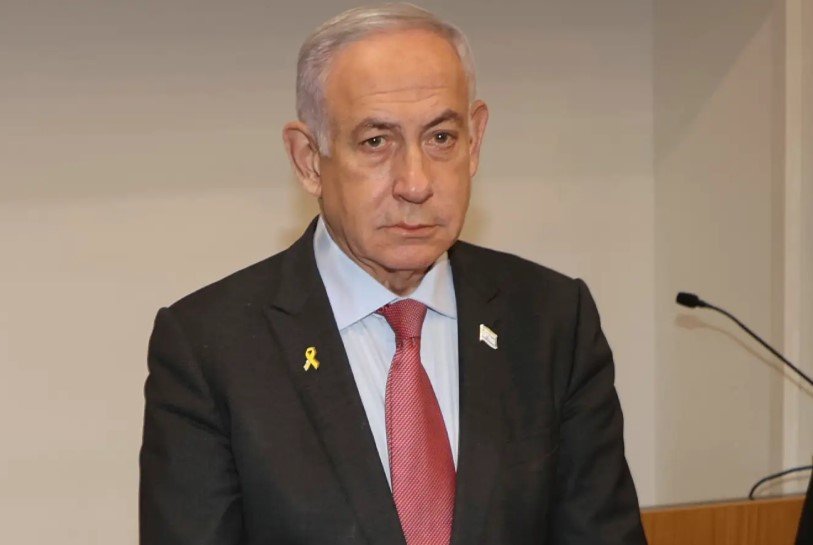Israeli PM to Work from Home for 3 Days as Hamas, Houthi Attacks Escalate
Israeli Prime Minister Benjamin Netanyahu is recovering at home after being diagnosed with intestinal inflammation and dehydration, a case of food poisoning that has temporarily sidelined the 75-year-old leader at a time of acute regional tension and growing domestic scrutiny.
The Prime Minister’s Office confirmed Sunday evening that Netanyahu had fallen ill overnight and was receiving IV fluids while being monitored by his personal medical team. He will remain at his private residence in Caesarea for the next three days, continuing to oversee state affairs remotely.
“In accordance with his doctors’ instructions, the Prime Minister will rest at home for the next three days and will manage state affairs from there,” his office said in a brief statement.
The timing of the illness adds yet another twist to a political and legal saga already defined by turbulence — from war and protests to a historic corruption trial that has now been postponed again until after the summer recess.

Corruption Trial Postponed — Again
The Jerusalem District Court announced on Monday that Netanyahu’s corruption trial, which has been repeatedly delayed since it began in May 2020, will not resume until September. Court officials cited both the Prime Minister’s health and the existing recess schedule.
Netanyahu faces charges in three separate cases:
-
Case 1000: Allegations he and his wife Sara received over $260,000 in luxury gifts, including cigars and champagne, from billionaire benefactors in exchange for political favors.
-
Case 2000 and 4000: Accusations that Netanyahu negotiated favorable media coverage from prominent Israeli outlets in return for regulatory or financial advantages.
The Prime Minister has vehemently denied any wrongdoing, describing the charges as a politically motivated “witch hunt.”
Legal experts note that the repeated postponements — citing war, diplomatic duties, and now illness — are testing the patience of the judiciary, but there is no formal limit on trial delays when the defendant is serving as head of state.
Geopolitical Headaches Intensify
Netanyahu’s illness coincides with a sharp escalation in regional attacks. On Sunday, Hamas’s military spokesperson Abu Obaida made his first televised appearance since March, declaring that the militant group would “open new fronts” if Israel continues its campaign in southern Gaza and northern Lebanon.
Within hours, Yemen’s Houthi rebels launched a barrage of drones toward Eilat and the Red Sea, reportedly targeting naval assets. The Israeli Defense Forces intercepted most of the drones, but the incident marks the fourth major Houthi strike this month, adding strain on Israel’s already overstretched military.
“It’s a concerning moment for Israel’s leadership vacuum,” said Gilead Sher, a former peace negotiator. “When the Prime Minister is unwell, and the region is heating up, the security cabinet has to carry a heavier burden.”
Netanyahu had been expected to chair a closed-door meeting of the National Security Council on Tuesday to discuss Iran’s expanding presence in Syria and Lebanon. That meeting has now been pushed to the weekend.
Fragile Health, Lingering Questions
Netanyahu’s health has been a source of quiet concern in recent years. He underwent pacemaker surgery in 2023 after experiencing arrhythmia and had his prostate removed last December following complications from a urinary tract infection.
Despite his age and recurring medical issues, the Prime Minister has shown little indication of slowing down. Aides insist he remains fully alert and involved, even from home.
Yet opposition lawmakers were quick to question whether the Prime Minister’s extended absences and legal entanglements undermine his ability to govern.
“At some point, the country needs full-time leadership, not a part-time defendant,” said Yair Lapid, head of the Yesh Atid party.
Public Sympathy and Political Ramifications
While many Israelis have expressed sympathy for Netanyahu’s illness — social media was flooded with “Refuah Shlema” (get well) messages — others remain skeptical, especially as the delay adds to growing frustration with judicial gridlock.
Netanyahu’s legal woes, combined with mass protests earlier this year over his judicial overhaul efforts, have taken a toll on his public image. According to a July poll by Channel 12 News, only 32% of Israelis say they trust him to handle the country’s security, down from 47% in February.
Still, with the war in Gaza unresolved, Hezbollah tightening its posture in Lebanon, and international pressure mounting over civilian deaths, there is little political appetite for leadership change — for now.
